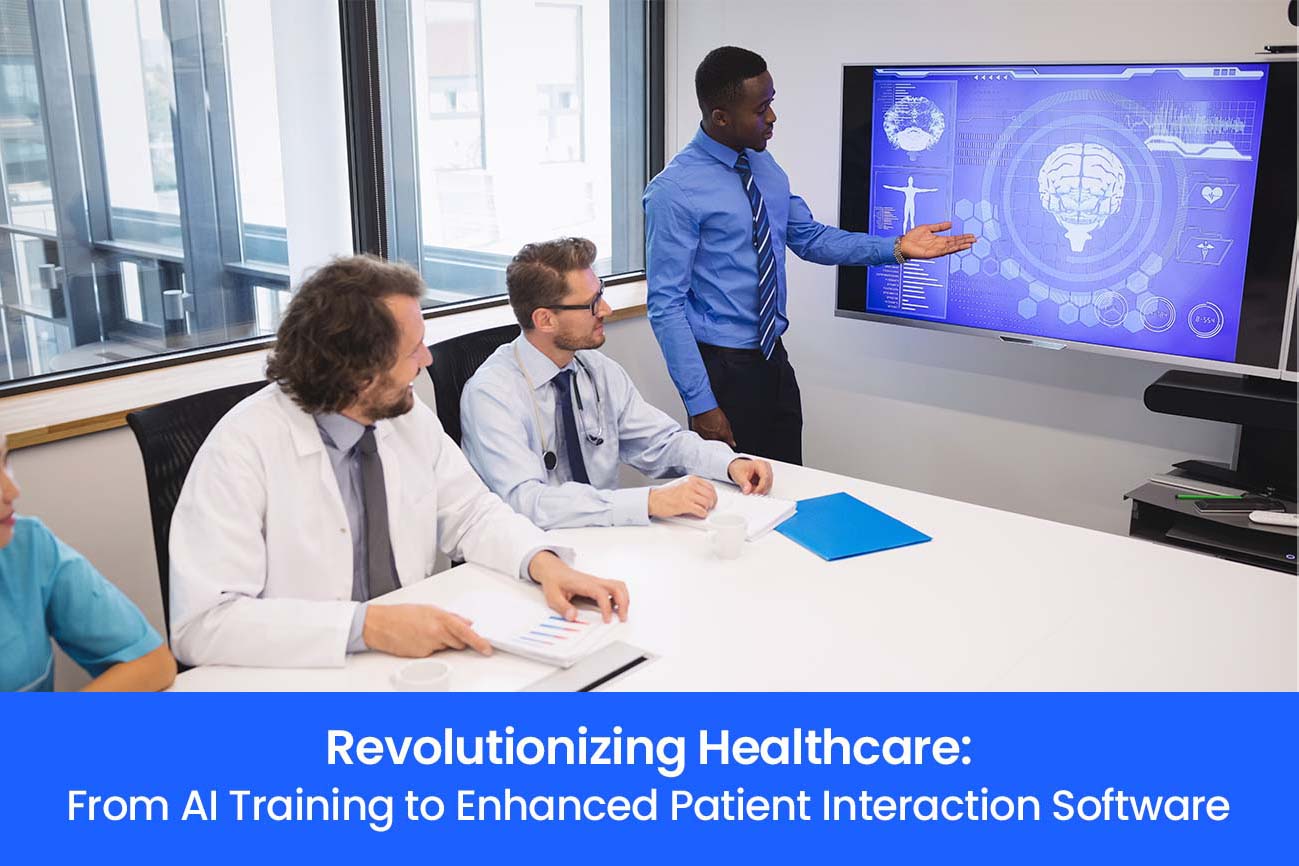
Revolutionizing Healthcare: From AI Training to Enhanced Patient Interaction Software
Today, we can see a rapid advancement in technology. The healthcare sector is standing at the forefront of innovation. From specialized courses on artificial intelligence (AI) for medical professionals to sophisticated software facilitating patient engagement, groundbreaking developments are reshaping the landscape of healthcare delivery. This article explores how these transformative innovations are transforming healthcare, paving the way for more personalized, effective, and patient-centered care.
-
AI Training: Empowering Healthcare Professionals
Artificial intelligence has emerged as a potent ally in healthcare, offering insights and solutions previously beyond reach. Customized AI training programs for medical practitioners are equipping them with the necessary skills to harness this technology effectively. Physicians, nurses, and allied healthcare workers are undergoing tailored education to grasp the potential applications of AI in diagnosis, treatment planning, and patient care.
By integrating AI into medical training, professionals are better equipped to leverage algorithms and predictive analytics, thus making informed decisions that can significantly enhance patient outcomes. AI-driven tools are simplifying administrative tasks, enabling healthcare professionals to dedicate more of their time to direct patient care. From automating appointment scheduling to parsing through medical records for pertinent information, AI is revolutionizing the operational aspect of healthcare delivery.
-
Enhanced Patient Interaction Software: Empowering Individuals
Beyond empowering healthcare providers, technology is also allowing patients to make informed decisions in managing their health. Enhanced patient interaction software plays a pivotal role in facilitating communication, collaboration, and accountability between patients and healthcare providers. These software solutions offer patients convenient access to documents related to medication, like medical records, test results, and treatment plans, which help them in medical treatments.
Technology also provides a few features to help them further, such as secure messaging, appointment reminders, and educational resources to foster continuous engagement. Patient interaction software promotes proactive healthcare management by encouraging adherence to medication regimens, lifestyle modifications, and preventive care measures. By equipping patients with the necessary tools and information, these software solutions contribute to improved health outcomes and overall patient satisfaction.
-
The Convergence of AI and Patient Interaction
The true potential of healthcare transformation lies at the intersection of AI and patient interaction software. By seamlessly integrating AI's predictive capabilities with the proactive approach of patient interaction, healthcare providers can deliver personalized and efficient care tailored to each patient's unique needs. AI algorithms can analyze vast datasets to identify patterns, predict health risks, and recommend personalized treatment plans.
These insights can then be communicated to patients through interaction platforms, empowering them to make informed decisions about their health. AI-powered virtual assistants can enhance the patient experience by providing continuous support, addressing inquiries, and guiding individuals through their healthcare journey. By harnessing the synergy between AI and patient interaction software, healthcare organizations can optimize resource allocation, enhance operational efficiency, and ultimately deliver better outcomes for patients.
As we navigate the complexities of modern healthcare, one thing remains clear: technology is driving transformative change in the way we deliver and experience healthcare services. From specialized AI training for healthcare professionals to enhanced patient interaction software, innovative solutions are reshaping the healthcare landscape.
By embracing these advancements and fostering collaboration between technology and the human touch, we can create a healthcare ecosystem that is not only efficient and effective but also compassionate and patient-centered. As we continue on this journey of transformation, let us leverage the power of technology to build a healthier, more connected world for all.
